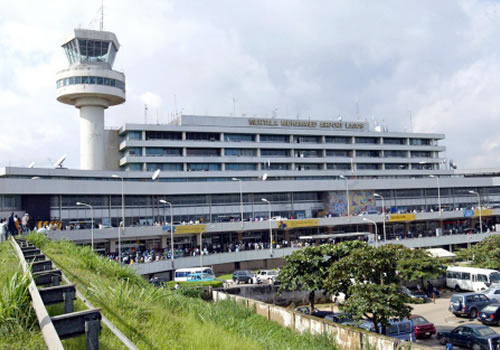The establishment of Free Trading Zone at the Murtala Muhammed Airport Lagos by the National Aviation Handling Company (NAHCO) Plc would attract over $500 million investment to the nation’s economy within five years, the Chairman of the Company, Mallam Suleiman Yahyah has said.
Speaking Tuesday at the national executive council meeting of the Air Transport Services Senior Staff Association of Nigeria (ATSSSAN) in Ijebu Ode, Ogun State, Yahyah said when the Free Trade Zone is fully operational, the project would create employment opportunities for quite a number of Nigerians and the economy would surely feel the impact of the operation of the free trade zone .
The Nahco Aviance chairman who reiterated the importance of making Lagos the aviation hub in the West Africa sub-region reiterated that the failure to do so would be devastating in the next few years.
He explained that both Senegal and Cote d’ Ivoire are making good progress towards developing their aviation infrastructure and that soon, any of these may be designated the West African hub.
The implication of such designation is that Nigerians, in the future, may need to fly to Dakar or Abidjan to sleep over before boarding a flight to a major European capital.
He noted that to develop the aviation sector in Nigeria to meet up with world standard, Nigeria needs to invest a minimum of $10 Billion.
According to him, an airport which Nigeria should designate as a hub should be able to handle about 25 million passengers annually.
While applauding the unique advantages of Lagos as a capital which connects to major world capitals in five to six hours, Yahyah pointed out that there is also the need to develop the soft infrastructure of the aviation sector.
He emphasized the need for the development of the human capital resource of the aviation industry while warning that “We should not jeopardize our Category 1 status.”
He commended the maturity of ATSSSAN in tackling issues in the sector adding that the aviation industry cannot survive a strike especially at this time when the security infrastructure of the country is undergoing severe stress.
In his remarks at the occasion, the Director of Operations, Nigerian Airspace Management Agency (NAMA), Mr. John Chuks Onyegiri observed that ground handling companies are a very important part of operations in the airport.
While also noting that training is key in the sector, Onyegiri added that the task of managing the air space safely is made more difficult by operators in the sector who fail to pay for services rendered. “The attitude of people wanting free service and yet refusing to pay for such a service would not help the industry.”
On his part, the national president of ATSSSAN, Comrade Benjamin Okewu, said that while the supervising Minister of Aviation may be doing a yeoman’s job, the industry needs the full attention of a substantive Aviation Minister.
According to him, “Our members are presently disturbed and agitated by the plan of the Federal Government to merge three agencies of the Ministry of Aviation, NCAA, NAMA and NIMET.
“ As we have profusely stated in our various public engagements in the media, petitions and appeals to pertinent authorities, this proporsed merger grossly violates the principles, letters and spirits of standards as prescribed by International Civil Aviation Organisation (ICAO) conventions and protocols.
“It is logitcal to perceive that if a regulatory agency like NCAA and a service provider body like NAMA are bundled into a single organization, the aviation industry would most likely become a bedlam of confusion.”


